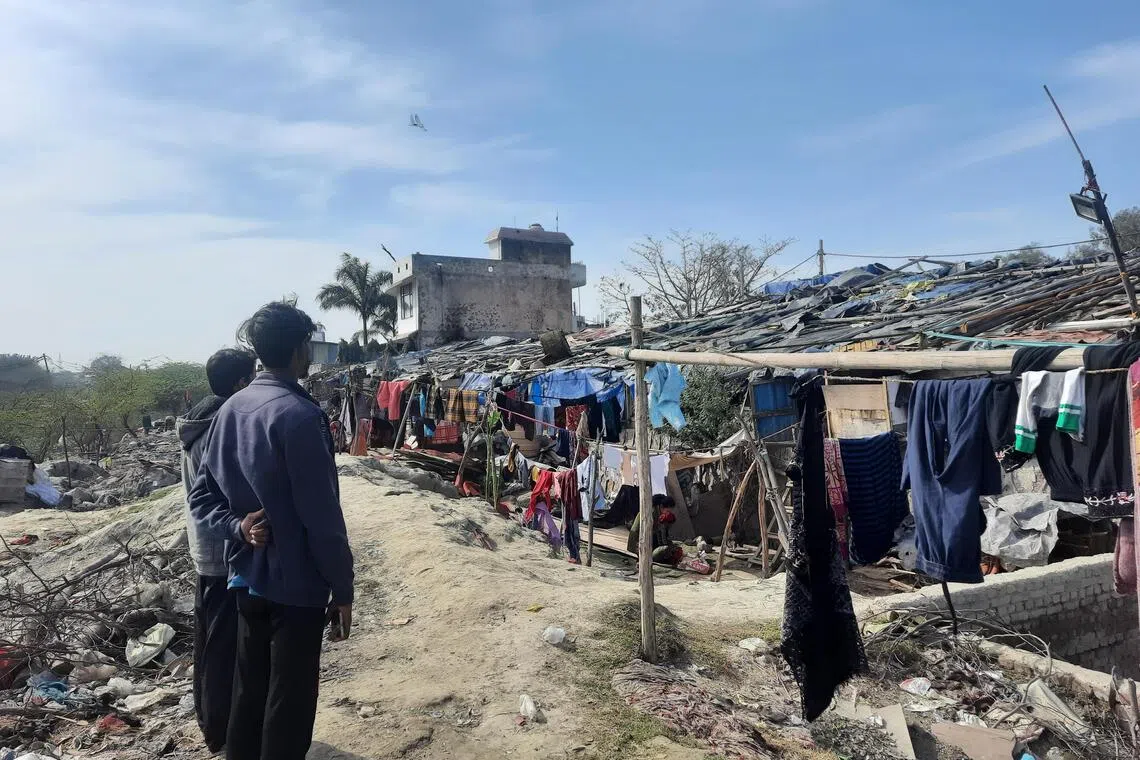For subscribers
News analysis
India’s uneven refugee policy plays favourites
Sign up now: Get insights on Asia's fast-moving developments

A Rohingya refugee camp in New Delhi.
PHOTO: ST FILE
- India's new order favours non-Muslim refugees from specific countries, excluding Muslims and raising concerns of legitimising biased treatment.
- The order, coupled with recent laws, introduces stricter penalties for "illegal migrants" and enhances surveillance, shifting immigration control.
- Critics fear the laws align with authoritarian trends, weaponising executive power to exclude based on religion, impacting vulnerable populations.
AI generated
BENGALURU – A new Indian government order that aims to curb illegal immigration will admit refugees fleeing religious persecution in three neighbouring countries but exclude Muslims, stoking fears that it will legitimise the harsher treatment of Muslim immigrants.
The government, which is led by the Hindu nationalist Bharatiya Janata Party (BJP), issued the Immigration and Foreigners (Exemption) Order on Sept 1, which will effectively be India’s refugee framework.



